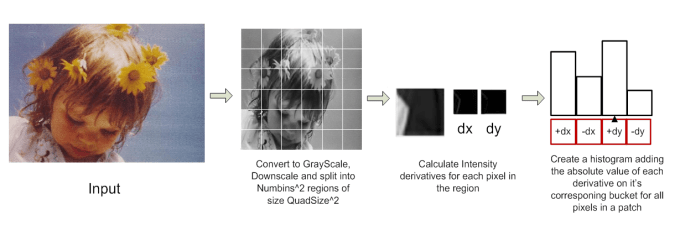No one will argue against the outcome of a case which saw a man arrested on child pornography charges, after Google tipped off authorities about illegal images found in the Houston suspect’s Gmail account. But the nature of how the discovery came about led some to questions about the methodologies used behind the scenes. Was Google actively scanning Gmail for illegal activity? Was Google overstepping its role as a service provider by tipping off authorities about the data hosted in a user’s Gmail account? – or so asked security firm Sophos shortly following the incident.
Those questions, however, seem to misunderstand the technology Google used to help make this arrest.
Today, Gmail customers generally know that Google uses a type of automated technology that scans your email for keywords and phrases in order to display relevant advertising to support the free service, and that no human ever actively reads your personal email.
Similarly, Google engineers were not reading through this man’s email account in order to spot the illegal images being shared. Nor does Google actively or passively (through automated means) scan users’ email accounts for other types of criminal activity, like planning a robbery, for example.
This case, and the technology that allowed for the arrest, is only focused on child pornography identification.
Child porn is a problem major internet companies, including both Microsoft and Google, have been tackling for years. In fact, one of the technologies used to identify and help stamp out the sharing of these illegal images online was originally developed by Microsoft.
PhotoDNA Automates Child Abuse Image Detection
Here’s how it works:
Microsoft’s “PhotoDNA” technology is all about making it so that these specific types of illegal images can be automatically identified by computer programs, not people. (That’s an awful and psychologically draining job, after all.)
PhotoDNA converts an image into a common black-and-white format and size the image to a uniform size, Microsoft explained last year while announcing its increased efforts at collaborating with Google to combat online child abuse.
The technology then divides the image into squares and assigns a numerical value that represents the unique shading found within each square. Combined, those numerical values represent the “PhotoDNA signature” of an image file. That unique signature can then be used in comparison with other images online.

Microsoft today uses the technology on Bing, Outlook.com and its cloud storage service to identify child abuse images and stop them from being redistributed online.
The technology itself grew out of a partnership between Microsoft, the National Center for Missing and Exploited Children (NCMEC) and Dartmouth College. And in 2009, Microsoft also donated PhotoDNA to NCMEC to aid in the fight against child exploitation.

When Microsoft finds an image signature match, it reports it to NCMEC in the U.S., or, in the U.K., those reports go to CEOP (Child Exploitation and Online Protection Centre). In 2012, Microsoft also began partnering with others, including law enforcement, to integrate PhotoDNA into tools used in child abuse investigations like Netclean Analyze, software often used by Swedish law enforcement agencies.
In addition, the International Centre for Missing and Exploited Children also has a program underway with various law enforcement agencies known as “Project Vic”, which uses PhotoDNA to help law enforcement automatically sift through the massive number of images in their child sexual exploitation investigations to ID new criminals.
Microsoft, Google & Others Team Up
In addition, Microsoft, Google, IWF (Internet Watch Foundation), and CEOP announced a joint program last year to take down images of abuse, including things like the blocking of torrent files by Microsoft’s Bing search engine which would have otherwise pointed to the illegal content.
But while Microsoft has made, perhaps, more public noise about the use of PhotoDNA technology, other technology companies, including Google, Twitter and Facebook, also use this system. For instance, Facebook said back in 2011 that PhotoDNA can, in some cases, even prevent illegal images from being uploaded to its site, and called the program amazingly accurate.
Meanwhile, Google itself developed an equivalent to PhotoDNA, with a similar hashing technology that can identify and help remove child abuse photos and videos.
Google declined to comment on the specifics surrounding the Houston arrest, but pointed to an earlier explanation about its position on this topic, shared by Google Chief Legal Officer David Drummond last summer. In the post, Drummond says that Google has co-funded IWF for nearly a decade, and works with Interpol and NCMEC in U.S. to fight child pornography.
And while his post didn’t call out Microsoft by name, it did reference Google’s use of “hashing” technology which it had then begun to incorporate into a cross-industry database, he said. That is, Google was to collaborate with others in the industry, like Microsoft, as Microsoft’s announcement later that year more clearly stated, explaining how the video tech and PhotoDNA would be used together.
Google’s Own Image Hashing Technology
However, in this particular case of the Houston arrest, PhotoDNA was not involved, although from what we’re hearing, something similar was.
Google has its own hashing technology, in use since 2008, which is used to detect sexual abuse imagery online. Google, Microsoft and other technology companies share technology like this to combat this sort of illegal activity. And while PhotoDNA may not have been the one to point to this specific arrest, its development and other hashing technologies are designed to make abuse image detection a more automated activity.
Google “Actively Removes” Illegal Imagery
Microsoft previously went into detail about what sort of content is blocked and where, and to some extent, Google has now offered us the same, telling us that Google “actively removes illegal imagery from our services – including search and Gmail – and immediately reports abuse to NCMEC.”
This evidence is then used regularly to convict criminals, the company noted.
What’s interesting here, and probably what caught the tech press’ attention this go-around, is that it wasn’t well understood that Google had introduced this technology to be used within Gmail.
This may be a more recent addition, as it turns out. unofficial Google blog Google Operating System, Google only a few months ago changed its terms of use from this to the currently available version. The changes include added text about Gmail’s position on child abuse imagery, calling it “zero-tolerance” and warning of disciplinary actions:
Google has a zero-tolerance policy against child sexual abuse imagery. If we become aware of such content, we will report it to the appropriate authorities and may take disciplinary action, including termination, against the Google Accounts of those involved.
This is not the first time Google has made the press for helping law enforcement catch those involved with child pornography, and it seems like each time it does, questions around privacy are brought up.
But those questions don’t seem to understand that Google isn’t playing cop inside users’ Gmail inboxes, it’s using an automated detection system that looks specifically for child pornography, and is part of a larger international effort to remove these images from the web.
Frankly, that’s something that no sane person should be against. And if you’re okay with Google automatically scanning your Gmail to help display better ads so you can use the service for free, it’s not exactly a big leap of faith to allow it automatically scan your Gmail to identify images of child abuse.
































Comment